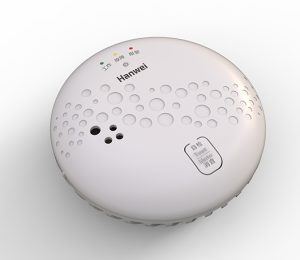Smoke detectors are vital devices that play a crucial role in safeguarding homes and workplaces against the dangers of fire. These devices serve as early warning systems, detecting smoke particles in the air and alerting occupants to potential fire hazards. Understanding their functionality and types is essential for ensuring proper fire safety measures.
How Do Smoke Detectors Work?
Smoke detectors primarily operate using two main technologies: ionization and photoelectric sensing.
– Ionization Detectors: These detectors contain a small amount of radioactive material that ionizes the air inside the device’s chamber. When smoke enters, it disrupts the ion flow, triggering the alarm.
– Photoelectric Detectors: These work by utilizing a light source and a sensor. When smoke particles enter the chamber, they scatter the light, which then triggers the alarm.
Types of Smoke Detectors
1. Battery-Powered Detectors: These are stand-alone units powered by batteries, making them easy to install in various locations without the need for wiring.
2. Hardwired Detectors: These detectors are connected directly to a building’s electrical system and often have a battery backup. They offer reliability and continuous power supply.
3. Interconnected Detectors: Interconnected smoke detectors are linked so that when one detects smoke, all interconnected units sound the alarm, ensuring that occupants are alerted regardless of their location within the premises.
Placement and Maintenance
Correct placement of smoke detectors is crucial for their effectiveness. Install detectors in key areas such as bedrooms, hallways, and common areas on each floor of the building. It’s essential to regularly test and maintain these devices by:
– Testing the alarm monthly to ensure proper functionality.
– Replacing batteries at least once a year (if applicable) or as soon as the low-battery warning sounds.
– Keeping detectors clean from dust or debris that could obstruct their sensors.
Benefits and Importance
Smoke detectors are indispensable for fire safety as they provide early detection, allowing people more time to evacuate and emergency services to respond promptly. They significantly reduce the risk of fatalities and property damage in the event of a fire.
Conclusion
Smoke detectors are indispensable devices for fire safety, serving as the first line of defense against potential disasters. Regular maintenance, proper installation, and understanding the different types available are essential for ensuring these devices function optimally and protect lives and property.
Investing in quality smoke detectors and being proactive in their upkeep is an investment in the safety and well-being of everyone within a home or workspace.
Remember, fire prevention starts with awareness, and smoke detectors are pivotal in ensuring a swift response to fire hazards.


Please contact us for free quotation by form below. We promise the quickest response within 24 hours: